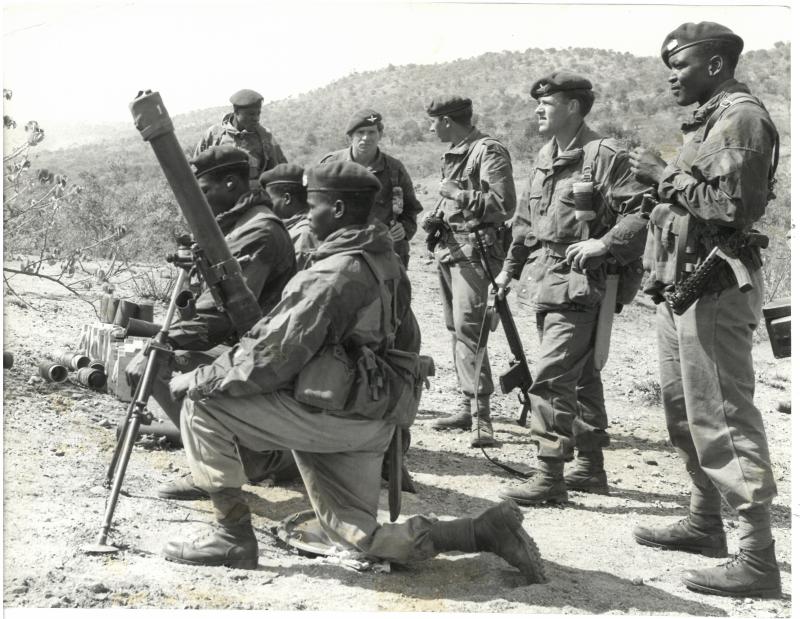×
The Standard e-Paper
Stay Informed, Even Offline

Kenya and British sodiers in a joint military training session in Nanyuki, Laikipia in August 1965. [File, Standard]
What happens when a president learns of a plot to topple him and cannot trust his own troops? This was the dilemma Jomo Kenyatta faced amid rumours that Russia had given arms to some insurgents to get rid of his government.